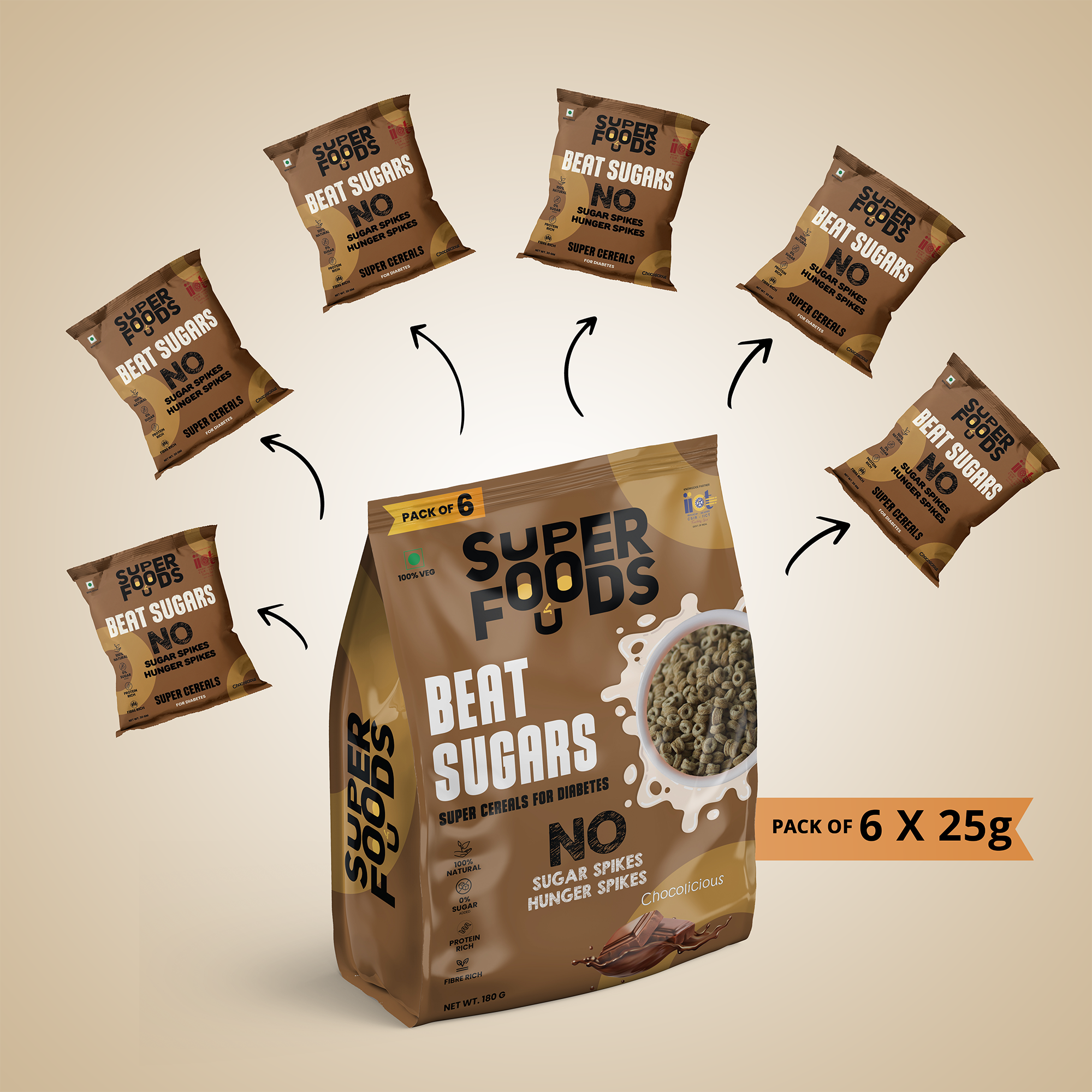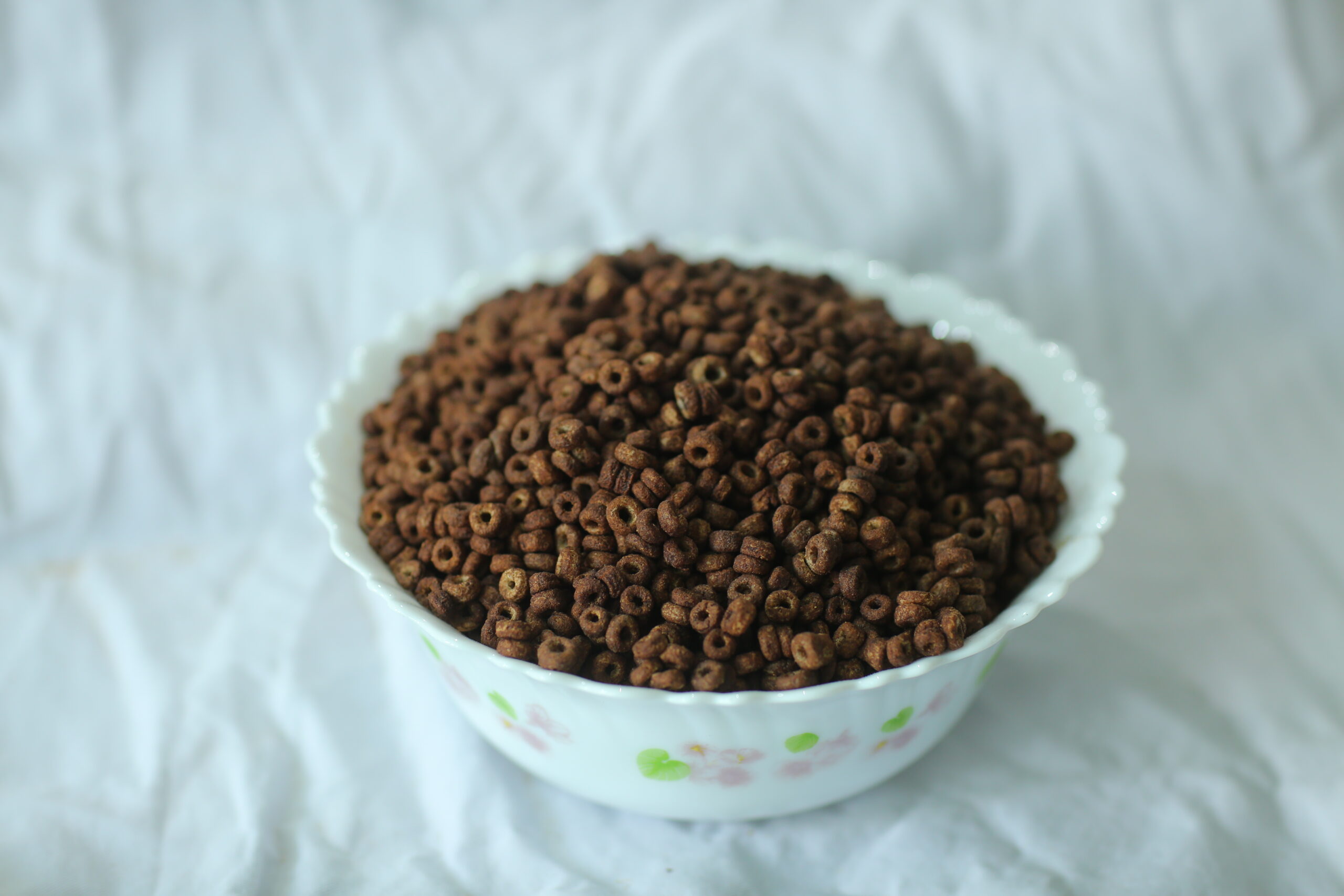Gestational Diabetes: Symptoms, Risks, and Nutritional Management
Gestational diabetes mellitus (GDM) is a form of diabetes that occurs during pregnancy. It’s a condition that affects a significant number of pregnant women worldwide, with India seeing particularly high rates. At Superfoods4U, we understand the importance of proper nutrition in managing gestational diabetes. This comprehensive guide will explore the symptoms, risks, and nutritional management strategies for GDM, with a focus on how superfoods can play a crucial role.
Understanding Gestational Diabetes
Gestational diabetes occurs when a woman’s body can’t produce enough insulin to meet the extra needs of pregnancy. This leads to high blood sugar levels that can affect both the mother and the baby.
Symptoms of Gestational Diabetes
Many women with GDM don’t experience noticeable symptoms. However, some may experience:
- Increased thirst
- Frequent urination
- Fatigue
- Blurred vision
Research: A study by the Indian Council of Medical Research (ICMR) found that up to 16.55% of pregnant women in India develop GDM.
Risks Associated with Gestational Diabetes
Untreated or poorly managed GDM can lead to risks for both mother and baby:
Risks for the Mother:
- Increased risk of developing type 2 diabetes later in life
- Higher likelihood of needing a cesarean section
- Increased risk of preeclampsia
Risks for the Baby:
- Macrosomia (excessive birth weight)
- Increased risk of breathing problems
- Higher risk of developing type 2 diabetes later in life
International Perspective: The American Diabetes Association highlights that proper management of GDM can significantly reduce these risks.
ADA Gestational Diabetes Guidelines
Nutritional Management of Gestational Diabetes
Proper nutrition plays a crucial role in managing gestational diabetes. Here’s how superfoods can help:
1. Barley (Jau)
- Benefits: High in fiber, helps control blood sugar
- How it helps: Beta-glucan in barley slows digestion and absorption of carbohydrates
Research: A study published in the Journal of Nutritional Science and Vitaminology found that barley consumption improved glycemic control in GDM patients.
2. Finger Millet (Ragi)
- Benefits: Low glycemic index, high in calcium and iron
- How it helps: Provides essential nutrients for pregnancy while helping maintain stable blood sugar levels
Indian Research: The National Institute of Nutrition, India, recommends ragi as a beneficial food for pregnant women, including those with GDM.
3. Fenugreek Seeds (Methi)
- Benefits: May improve insulin sensitivity
- How it helps: Contains compounds that can help lower blood glucose levels
International Research: A study in the International Journal of Vitamin and Nutrition Research showed fenugreek’s potential in improving glucose tolerance in GDM.
4. Amla (Indian Gooseberry)
- Benefits: High in vitamin C and antioxidants
- How it helps: Supports overall health and may help in glucose regulation
Research: Studies at the All India Institute of Medical Sciences (AIIMS) have shown amla’s potential in managing blood sugar levels.
5. Turmeric (Haldi)
- Benefits: Anti-inflammatory properties
- How it helps: May help reduce inflammation associated with GDM
Research: A review in Food & Function journal highlighted turmeric’s potential benefits in diabetes management, including GDM.
Superfoods4U: Supporting Gestational Diabetes Management
At Superfoods4U, we’ve developed pregnancy-friendly snacks that incorporate these beneficial superfoods to support women with gestational diabetes.
Key Features of Our Pregnancy-Friendly Products:
- Superfood-Rich Formulations: Our snacks include a carefully selected blend of barley, finger millet, fenugreek seeds, amla, and turmeric.
- Low Glycemic Index: Our recipes are designed to have a low GI, helping to maintain stable blood sugar levels.
- Nutrient-Dense: Each snack provides essential nutrients crucial for a healthy pregnancy.
How Our Products Can Help:
- Offer convenient, portion-controlled snack options for pregnant women
- Provide a blend of superfoods that support blood sugar management
- Deliver essential nutrients needed during pregnancy
Explore our pregnancy-friendly snack range
Additional Nutritional Tips for Managing Gestational Diabetes
- Balanced Meals: Include a mix of complex carbohydrates, lean proteins, and healthy fats in each meal.
- Regular Eating Schedule: Eat smaller, more frequent meals throughout the day to maintain stable blood sugar levels.
- Portion Control: Use the plate method to control portions – 1/2 plate non-starchy vegetables, 1/4 plate lean protein, 1/4 plate complex carbohydrates.
- Stay Hydrated: Drink plenty of water throughout the day.
- Limit Sugary Foods: Avoid or limit intake of sugary snacks and beverages.
Lifestyle Management for Gestational Diabetes
- Regular Physical Activity: Engage in pregnancy-safe exercises as approved by your healthcare provider.
- Blood Sugar Monitoring: Check blood sugar levels regularly as advised by your doctor.
- Stress Management: Practice relaxation techniques like prenatal yoga or meditation.
- Adequate Sleep: Aim for 7-9 hours of quality sleep per night.
- Regular Check-ups: Attend all prenatal appointments and follow your healthcare provider’s advice.
Conclusion
Gestational diabetes requires careful management, but with the right nutritional approach and lifestyle changes, it’s possible to have a healthy pregnancy. Incorporating superfoods into your diet, along with following your healthcare provider’s advice, can play a significant role in managing blood sugar levels and ensuring the best outcomes for both mother and baby.
Remember, our Superfoods4U pregnancy-friendly snacks are designed to complement a balanced diet and support gestational diabetes management. However, they should be part of a comprehensive approach to managing GDM as advised by your healthcare provider.
Always consult with your obstetrician, endocrinologist, or a registered dietitian specializing in gestational diabetes for personalized advice on managing your condition.
For more information on gestational diabetes management and healthy pregnancy tips, visit the Federation of Obstetric and Gynaecological Societies of India or the International Diabetes Federation, and check our blog regularly for updates and pregnancy-friendly recipes.




